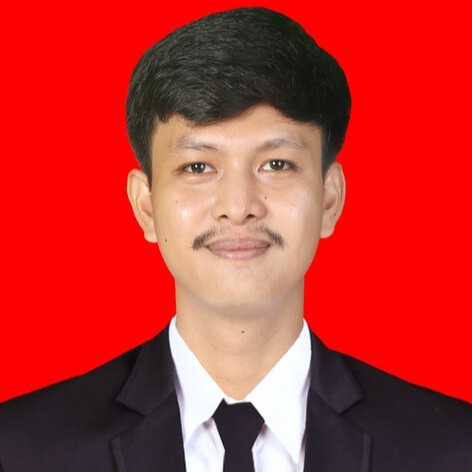REALIZING A WELFARE STATE BASED ON PROPETIC ISLAMIC LAW
Sari
This study aims to formulate the concept of a welfare state based on prophetic Islamic law. The concept of the welfare state upholds human rights, while man as a creature of God Almighty must be able to understand its essence by transcending metaphysical thinking and engaging himself into prophetic law. The research method used is juridical-normative with a conceptual approach and documentary studies. The legal material used is in the form of the 1945 Constitution and analyzed using qualitative methods. The concept of the welfare state upholds human rights, but the view of the welfare state known to the majority of the world's population comes from European countries that are secular or separate the state from religion. However, the prophetic Islamic view invites man to think metaphysically to understand the existence of God's truth and justice in the universe. This idea is not only to create a human-centered welfare state (homocentric) but also to restore human law following the divine law (Theocentric).
jahteraan.
Teks Lengkap:
PDFReferensi
Bisariyadi, Bisariyadi. “Pergulatan Paham Negara Kesejahteraan (Welfare State) Dan Negara Regulasi (Regulatory State) Dalam Perkara Konstitusional.†Jurnal Hukum Ius Quia Iustum 23, no. 4 (2016): 531–51.
Briando, Bobby. “Prophetical Law : Membangun Hukum Berkeadilan Dengan Kedamaian.†Jurnal Legislasi Indonesia 14, no. 03 (2017): 313–24. https://doi.org/https://doi.org/10.54629/jli.v14i3.123.
Dewi, Elitya Rosita, Chechen Hidayatullah, Dwi Oktaviantari, and Maulidya Yuniar Raini. “Konsep Kepemimpinan Profetik.†Al-Muaddib: Jurnal Ilmu-Ilmu Sosial Dan Keislaman 5, no. 1 (2020): 147–59. https://doi.org/http://dx.doi.org/10.31604/muaddib.v5i1.147-159.
Elviandri, Elviandri, Khudzaifah Dimyati, and Absori Absori. “Quo Vadis Negara Kesejahteraan: Meneguhkan Ideologi Welfare State Negara Hukum Kesejahteraan Indonesia.†Mimbar Hukum 31, no. 2 (June 3, 2019): 252. https://doi.org/10.22146/jmh.32986.
Fajar, Mukti, and Yulianto Achmad. Dualisme Penelitian Hukum: Normatif Dan Empiris. 5th ed. Yogyakarta: Pustaka Pelajar, 2019.
Fuadi, Ariza. “Negara Kesejahteraan (Welfare State) Dalam Pandangan Islam Dan Kapitalisme.†Jurnal Ekonomi Syari’ah Indonesia Vol. V, no. 1 (2015): 13–32.
Kementerian Agama Republik Indonesia. “Syaamil Al-Qur’an, Miracle The Reference.†Bandung: Sygma Publishing, 2010.
Pass, Christopher Laurence, Bryan Lowes, and Leslie Davies. “Kamus Lengkap Ekonomi.†Edited by Tumpal Rumapea and Posman Halolo. Jakarta: Pustaka Erlangga, 1994.
Pierson, Christopher. Welfare State: The New Political Economy of Welfare. Pennsylvania: The Pennsylvania State University Press, 2007.
Riwanto, Agus, and Sukarni Suryaningsih. “Realizing Welfare State and Social Justice: A Perspective on Islamic Law.†Volksgeist: Jurnal Ilmu Hukum Dan Konstitusi 5, no. 1 (June 30, 2022): 41–51. https://doi.org/10.24090/volksgeist.v5i1.6430.
Sardi, Martinus. “Manusia Membuat Hukum Bagi Dirinya Sendiri: Refleksi Filosofis Atas Hukum Yang Berperspektif Hak Asasi Manusia.†Dalam: Menafsir Ulang Strategi Kebudayaan, 2012.
Sukmana, Oman. “Konsep Dan Desain Negara Kesejahteraan (Welfare State).†Jurnal Sospol FISIP UM MALANG 2, no. 1 (2016): 102–20.
Triwibowo, Darmawan, and Sugeng Bahagijo. Mimpi Negara Kesejahteraan. Jakarta: LP3ES, 2006.
DOI: https://doi.org/10.33387/dejure.v5i1.7104
Refbacks
- Saat ini tidak ada refbacks.
de Jure : Jurnal Ilmiah Ilmu Hukum is licensed under a Creative Commons Attribution-NonCommercial 4.0 International License.
Editorial Official :
Jusuf Abdulrahman, Campus II, Gambesi, Ternate City, North Maluku Indonesia.
dejure.hukum@unkhair.ac.id, WhatsApp: +6281343974566











